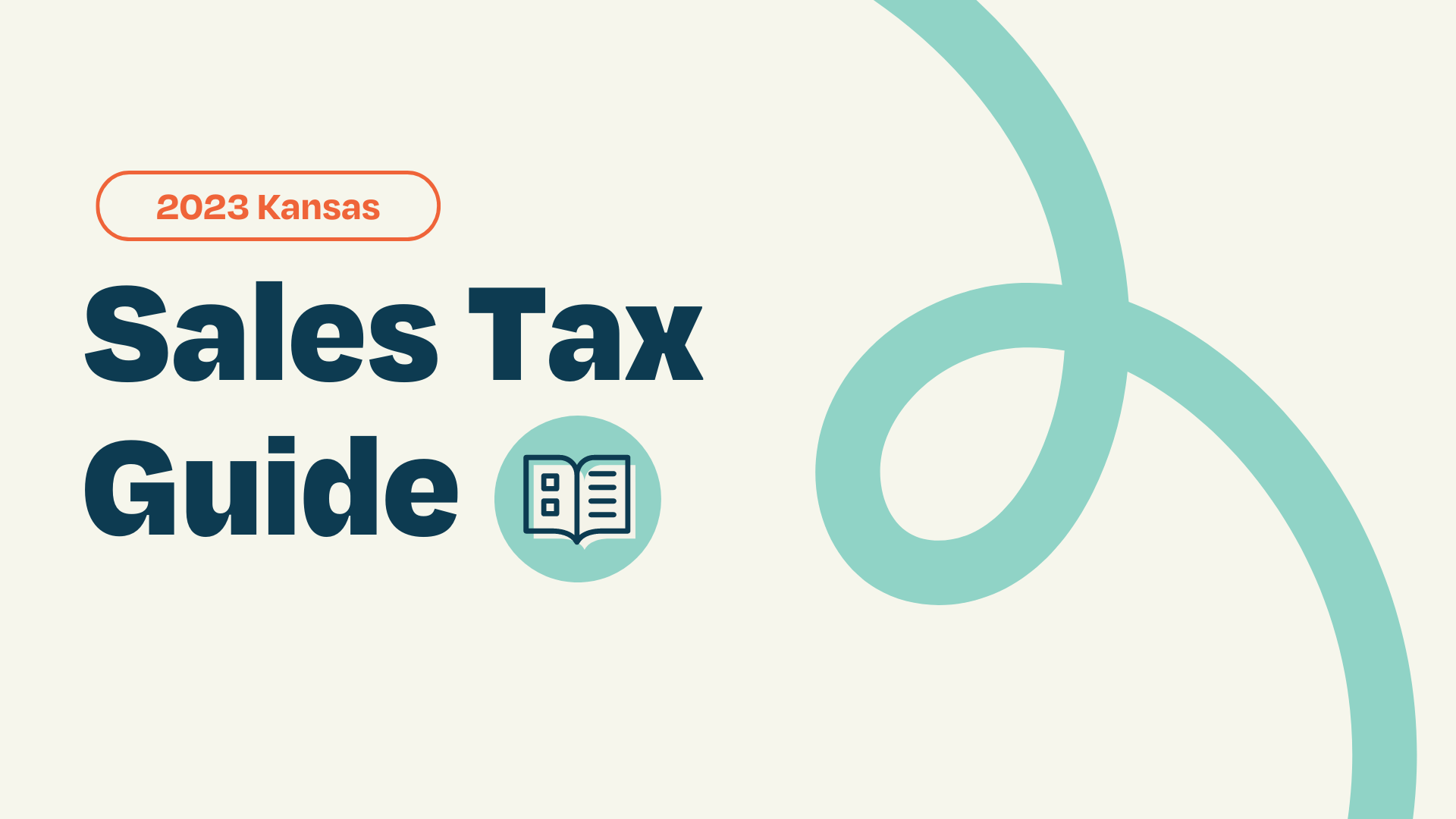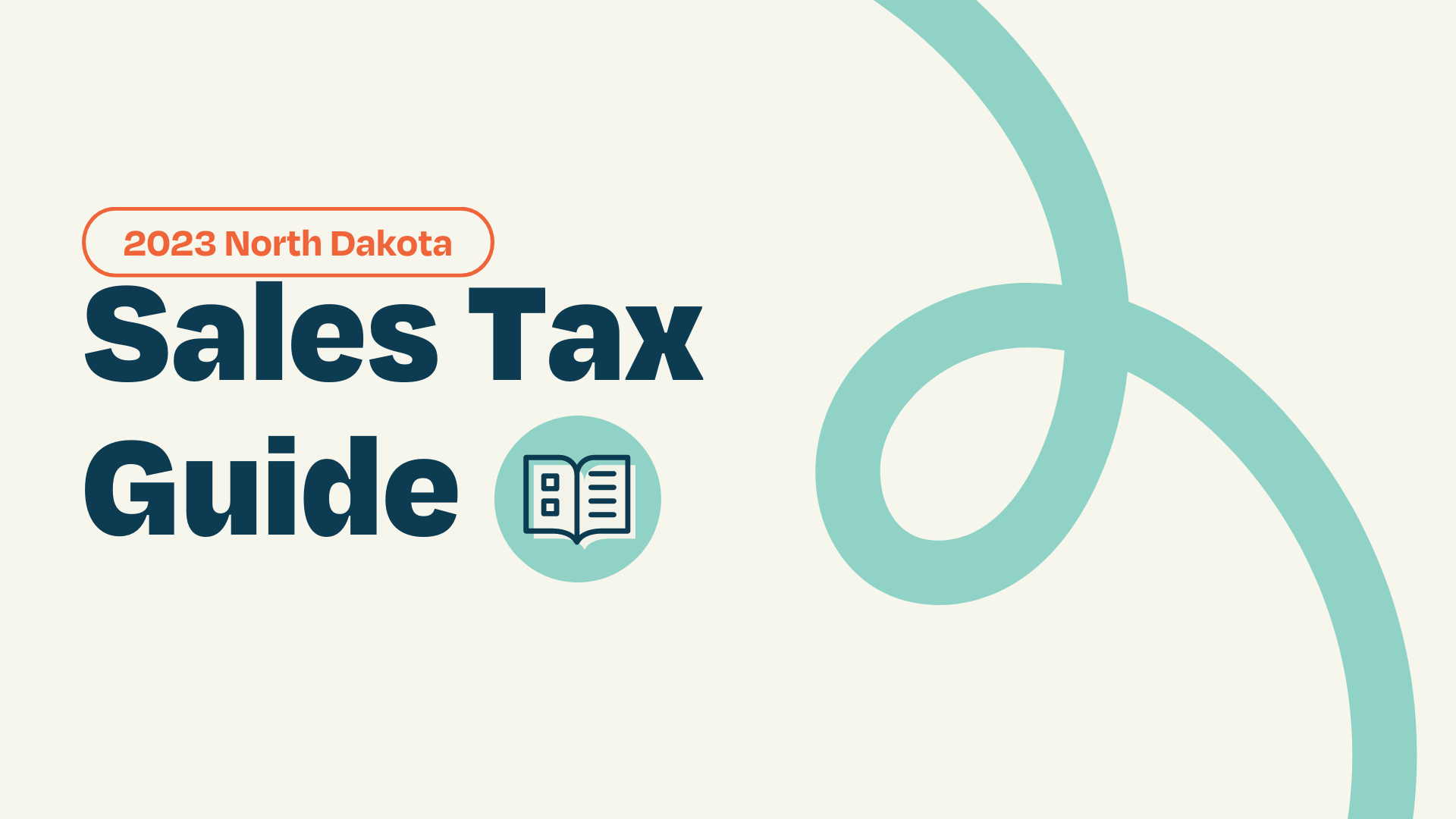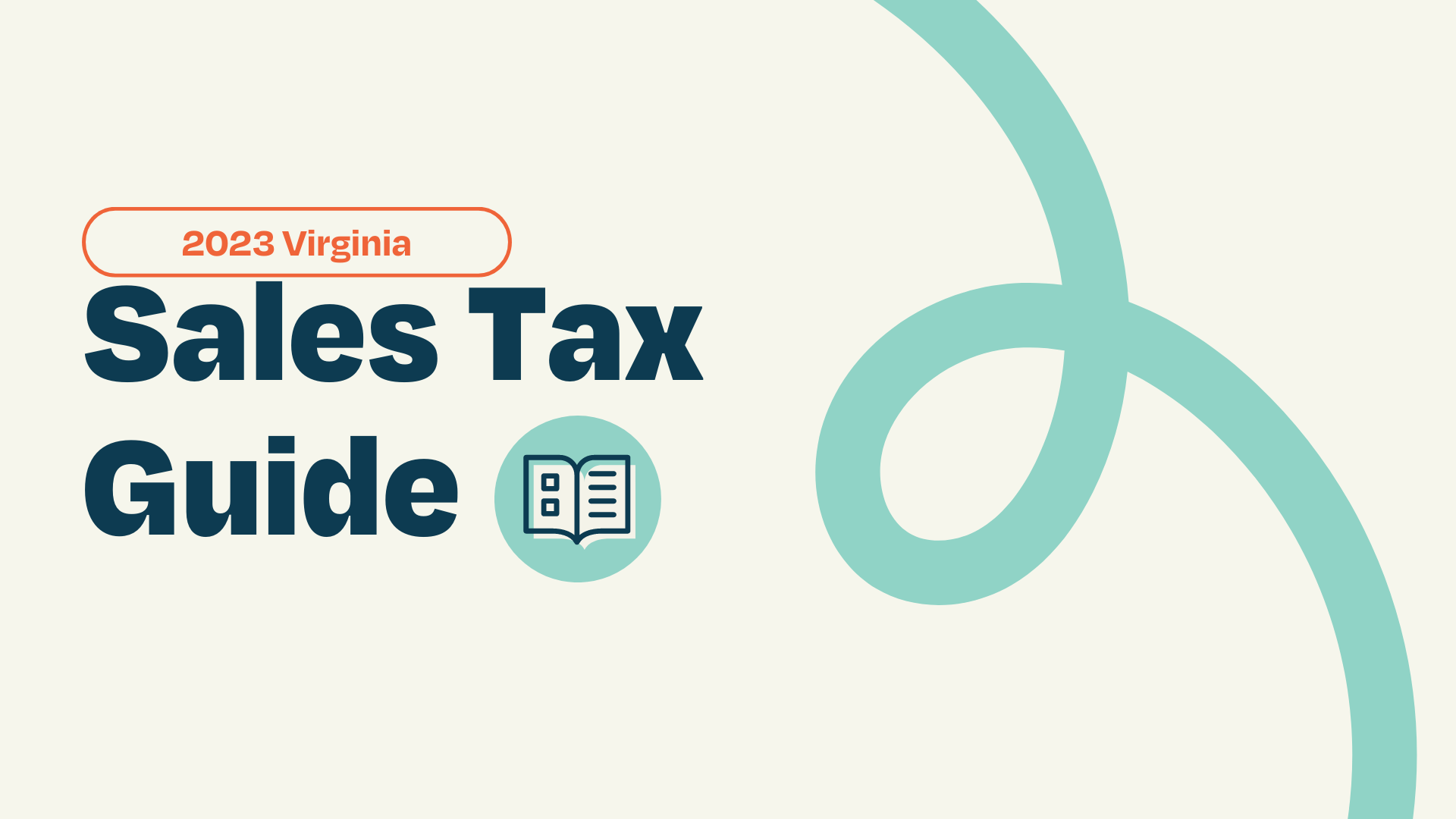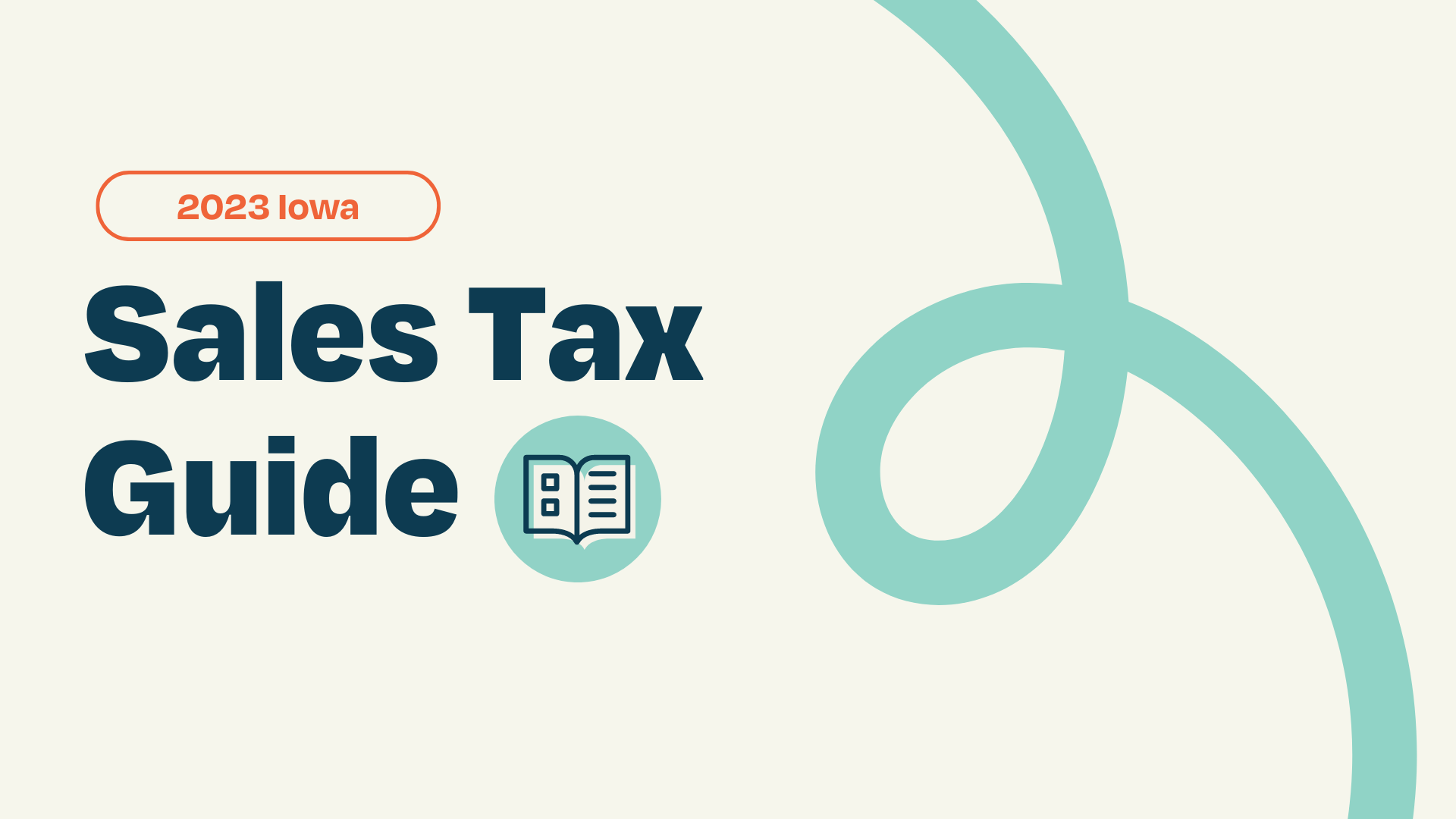North 2023 Dakota Sales Tax Guide
North Dakota Sales Tax in a Word Embarking on the journey of running a small business in North Dakota is an exciting adventure filled with...

Welcome to the Accountingprose Kansas Sales Tax Guide, your go-to resource for navigating the ins and outs of sales tax compliance in the Sunflower State. As a small business owner, it's crucial to understand sales tax laws and stay up-to-date on any changes that could impact your bottom line. But fear not! We've got your back, providing a comprehensive guide that's equal parts informative, engaging, and easy to understand.
In this guide, we'll cover everything from sales tax registration and rates to exemptions and filing requirements, all presented in a warm and conversational tone that makes even the most complex tax concepts feel more approachable. Along the way, we'll sprinkle in some humor to keep things entertaining and ensure you never feel lost in a sea of tax jargon.
So, whether you're just starting your business journey in Kansas or you're a seasoned entrepreneur seeking a refresher on sales tax compliance, this guide has you covered. Let's dive in and explore the world of Kansas sales tax together, with Accountingprose as your trusty sidekick, ready to support and respond to your needs at every step of the process.
|
Table of Contents |
The Kansas Department of Revenue is responsible for managing sales tax in Kansas. Here's their contact information to help you get the answers and assistance you need:
Kansas Department of Revenue
915 SW Harrison St.
Topeka, KS 66625-0001
Phone: (785) 368-8222
Website: ksrevenue.org
Before you set sail on your sales tax journey, it's crucial to determine whether your business has established a sales tax nexus in Kansas. In other words, it's essential to know if you have a taxable presence in the Sunflower State.
Sales tax nexus is the connection between your business and Kansas that requires you to collect and remit sales tax. This connection can be established through various avenues, such as physical presence, economic activity, and affiliate relationships. Let's dive in and explore each type of nexus.
Physical nexus is a connection between your business and Kansas established by having a tangible presence in the state. Some common examples of physical nexus include:
Owning or leasing property (such as an office, warehouse, or retail store)
Employing personnel in Kansas
Storing inventory in the state
Using a third-party provider with a physical presence in Kansas
If your business has a physical nexus in Kansas, you'll need to collect and remit sales tax on transactions with customers in the state.
Economic nexus is established when your business surpasses a specified sales threshold within the state. In Kansas, you'll create an economic nexus if your annual gross revenue from sales, including taxable and exempt transactions, exceeds $100,000 in the current or previous calendar year. If your business meets this criterion, you'll need to collect and remit Kansas sales tax.
Affiliate nexus arises when your business has a close relationship with another entity in Kansas, such as a subsidiary, parent company, or a company with shared ownership. If this relationship results in a taxable presence in the state, you'll need to collect and remit Kansas sales tax.
Click-through nexus is created when a Kansas-based affiliate or referral partner, such as a blogger or influencer, sends traffic to your website through a unique link, and you compensate them for the referral. If your business generates over $10,000 in sales through these referrals in the preceding 12 months, you'll establish click-through nexus in Kansas and need to collect and remit sales tax.
Marketplace nexus occurs when your business sells products or services through an online marketplace like Amazon, eBay, or Etsy, and the marketplace facilitator has a taxable presence in Kansas. In this case, the marketplace facilitator is generally responsible for collecting and remitting Kansas sales tax on your behalf. However, it's essential to verify and track the sales tax collected to ensure compliance.
Determining if your business has a sales tax nexus in Kansas is a vital first step in navigating the state's sales tax landscape. By understanding the different types of nexus, you can ensure that your business stays compliant and sails smoothly through the Sunflower State's sales tax waters.
Once you've determined that your business has a sales tax nexus in Kansas, it's time to register for a Kansas sales tax license. This license is your golden ticket to legally collect and remit sales tax in the Sunflower State. Let's explore the registration process and address some common questions.
Registering for a Kansas sales tax license is a user-friendly process designed to get your business up and running in no time. Follow these simple steps to apply online through the Kansas Department of Revenue's Kansas Customer Service Center:
Create an account: Visit the Kansas Customer Service Center and click on "Register Now" to create a new account. You'll need to provide your email address, create a password, and answer security questions.
Log in and start your application: Once your account is set up, log in and click on "Apply for a Sales Tax License" to begin your application.
Provide your business information: You'll be prompted to enter your business name, contact information, and mailing address. Make sure this information is accurate, as it will be used for official correspondence with the Kansas Department of Revenue.
Enter your EIN or SSN: You'll need to provide either your Federal Employer Identification Number (EIN) or your Social Security Number (SSN), depending on your business structure. Remember that you can use your SSN if you're a sole proprietor without employees.
Identify your business structure: Select the appropriate business structure (e.g., sole proprietorship, partnership, corporation) from the list provided. This information helps the Kansas Department of Revenue understand your tax obligations better.
Provide details about business owners or officers: Enter the names and contact information of all business owners, partners, or corporate officers. This information is required to ensure that all responsible parties are aware of and accountable for sales tax obligations.
Provide your NAICS code: You'll need to enter your North American Industry Classification System (NAICS) code, which identifies the primary type of business activity your company engages in. You can look up your NAICS code on the U.S. Census Bureau's website.
Estimate your monthly sales tax liability: The Kansas Department of Revenue requires you to estimate your average monthly sales tax liability. This helps determine your filing frequency, which can be monthly, quarterly, or annually.
Select additional tax types: If your business is involved in other activities that require tax registration, such as cigarette and tobacco products, liquor, or motor fuel sales, you can register for those tax types during this process.
Review and submit your application: Double-check your application for accuracy, and then click "Submit" to send it to the Kansas Department of Revenue for processing. You'll receive a confirmation email acknowledging receipt of your application.
In most cases, the Kansas Department of Revenue will process your application within 10 business days and issue your sales tax license. Keep an eye on your email for updates and your official sales tax license, which will allow you to legally collect and remit sales tax in Kansas.
Good news! There is no fee to register for a Kansas sales tax license. It's a complimentary service provided by the Kansas Department of Revenue to help businesses stay compliant with sales tax regulations.
Yes, you'll need a Federal Employer Identification Number (EIN) to register for a Kansas sales tax license. If you're a sole proprietor without employees, you may use your Social Security Number (SSN) instead. You can obtain an EIN by visiting the IRS website.
Depending on your business type and activities, you may need to register with additional agencies in Kansas. Some common agencies include:
Kansas Secretary of State: If your business is a corporation, limited liability company (LLC), or partnership, you'll need to register with the Kansas Secretary of State.
Kansas Department of Labor: If you have employees, you'll need to register for unemployment insurance with the Kansas Department of Labor.
Kansas Department of Human Services: If you sell food or provide public accommodations, you may need to register with the Kansas Department of Human Services for health and safety permits.
Registering for a Kansas sales tax license is a straightforward process that sets your business up for success. With your license in hand, you'll be ready to navigate the sales tax waters of the Sunflower State with confidence!
Now that you're registered for sales tax in Kansas, it's time to familiarize yourself with the ins and outs of collecting sales tax in the Sunflower State. From understanding origin vs. destination sales tax to knowing which products and services are taxable, this guide will help you navigate the Kansas sales tax landscape with ease.
Kansas is a destination-based sales tax state, which means that sales tax is determined by the buyer's location rather than the seller's. When selling to a customer in Kansas, you'll need to collect sales tax based on the customer's shipping address, whether it's a residential or commercial location.
In Kansas, sales tax applies to the sale, rental, or lease of tangible personal property and certain services. This includes:
Retail sales of tangible goods like clothing, electronics, and furnitureRental of personal property like tools, equipment, and vehiclesTaxable services like installation, repair, maintenance, or landscaping
Yes, Software as a Service (SaaS) is subject to sales tax in Kansas. The state treats SaaS as a taxable service because it involves providing access to prewritten computer software.
Kansas offers several exemptions from sales tax. Some common exempt items include:
Prescription medications
Unprepared food items (such as groceries)
Certain agricultural supplies and machinery
Sales to nonprofit organizations, religious institutions, and educational institutions
Sales to the federal or state government
Customers who qualify for sales tax exemptions in Kansas include:
Nonprofit organizations, religious institutions, and educational institutions with a valid exemption certificate
Government agencies making purchases for official use
Farmers and ranchers purchasing agricultural supplies and machinery for use in their operations
If your customer is exempt from sales tax in Kansas, you'll need to obtain a completed Kansas Exemption Certificate (ST-28) from the customer. Keep this certificate on file for your records and to support the tax-exempt sale in the event of a sales tax audit.
If you lose a Kansas sales tax exemption certificate, it's important to request a new copy from your customer as soon as possible. Without a valid exemption certificate on file, you may be held liable for the uncollected sales tax in the event of a sales tax audit.
Understanding the rules for collecting sales tax in Kansas is essential to staying compliant and ensuring your business's success. By familiarizing yourself with the destination-based sales tax system, knowing which products and services are taxable, and properly handling sales tax exemptions, you'll be well-equipped to navigate the Sunflower State's sales tax waters with confidence!
Now that you're a sales tax pro at collecting Kansas sales tax, it's time to tackle the next challenge: filing and paying your sales taxes on time. In this guide, we'll cover essential information such as filing frequency, due dates, and how to file your Kansas sales tax return. We'll also discuss potential penalties, discounts, and sales tax holidays that may impact your business.
The Kansas Department of Revenue assigns filing frequencies based on your estimated average monthly sales tax liability.
There are three main frequencies:
Monthly: If your estimated monthly sales tax liability is more than $4,000, you'll need to file and pay your sales tax monthly. Returns and payments are due by the 25th of the month following the taxable period.
Quarterly: If your estimated monthly sales tax liability is between $80 and $4,000, you'll need to file and pay your sales tax quarterly. Returns and payments are due by the 25th of the month following the end of each quarter.
Annual: If your estimated monthly sales tax liability is less than $80, you'll need to file and pay your sales tax annually. Returns and payments are due by January 25th of the following year.
If a Kansas sales tax filing date falls on a weekend or holiday, the deadline is extended to the next business day. Keep an eye on the Kansas Department of Revenue's website for a list of recognized holidays that might impact your filing schedule.
Filing your Kansas sales tax return might seem intimidating at first, but with the right resources and information at your fingertips, it's a breeze. Follow these step-by-step instructions to ensure you successfully file your Kansas sales tax return:
Gather Your Records: Before you begin filing your return, gather your sales records for the filing period. This includes your total sales, taxable sales, exempt sales, and the amount of sales tax collected. Organizing your records ahead of time will make filing more efficient and accurate.
Log in to the Kansas Customer Service Center: To file your Kansas sales tax return online, visit the Kansas Customer Service Center and log in to your account. If you haven't registered for an account yet, you'll need to do so before you can file your return.
Select the Appropriate Filing Period: Once you've logged in, you'll need to choose the correct filing period for your return. Keep in mind your filing frequency (monthly, quarterly, or annually) and ensure you're selecting the right period.
Complete the Online Sales Tax Return Form (ST-36): After selecting the appropriate filing period, you'll be prompted to complete the online sales tax return form, also known as Form ST-36. This form will ask for the following information:
Your Kansas sales tax registration number
Your business's legal name and address
The filing period (month, quarter, or year)
Total sales during the filing period
Total taxable sales and exempt sales
The amount of sales tax collected
Any adjustments or credits
The total sales tax due
Carefully enter your information, double-checking for accuracy to avoid errors that could lead to penalties or delays.
Calculate the Kansas Sales Tax Discount (If Applicable): If you're filing and paying your sales tax on time, you may be eligible for a discount. Be sure to calculate the 1.6% discount (up to $2,500 per filing period) on the tax due, and factor this into your total payment.
Review and Submit Your Return: Once you've completed the online form, review your entries for accuracy. Make any necessary corrections, and then submit your return electronically.
Make Your Sales Tax Payment: After submitting your return, you'll need to pay your sales tax liability. You can do this through the Kansas Customer Service Center using an electronic funds transfer (EFT) or credit card. Keep in mind that a convenience fee may apply for credit card payments.
Save a Copy of Your Filed Return: After submitting your return and making your payment, be sure to save a copy of the filed return for your records. This will come in handy in case of an audit or if you need to reference it in the future.
Boom! You're done!
There are several penalties that can be assessed for sales tax filing in Kansas if you fail to file on time, don't file at all, or don't pay the sales tax due. Here's a breakdown of the various penalties:
If you file your Kansas sales tax return after the due date, a penalty of 1% of the unpaid tax for each month or fraction of a month will be assessed, up to a maximum of 24%. This penalty is in addition to any interest that may accrue on the unpaid tax.
If you don't file your Kansas sales tax return at all, a penalty of 10% of the tax due, or $25 (whichever is greater), will be assessed. This penalty is in addition to any late filing penalty and interest that may apply.
If you fail to pay your Kansas sales tax liability on time, a penalty of 1% of the unpaid tax for each month or fraction of a month will be assessed, up to a maximum of 24%. This penalty is in addition to any interest that may accrue on the unpaid tax.
If the Kansas Department of Revenue determines that your failure to file or pay your sales tax was due to negligence or intentional disregard of the law, a penalty of 10% of the tax due may be assessed. This penalty is in addition to any other penalties and interest that may apply.
If you knowingly or willfully file a false or fraudulent Kansas sales tax return, a penalty of 50% of the tax due may be assessed. This penalty is in addition to any other penalties and interest that may apply.
In addition to penalties, interest will accrue on any unpaid sales tax at a rate set by the Kansas Department of Revenue, which is subject to change each calendar year.
To avoid these penalties, it's essential to stay organized, understand your filing frequency, be aware of your due dates, and file and pay your sales tax on time. By doing so, you'll maintain a healthy relationship with the Kansas Department of Revenue and keep your business thriving in the Sunflower State.
Kansas offers several sales tax incentives to encourage economic development and growth within the state. These incentives are designed to support businesses and promote job creation, investment, and community development.
Some of the key sales tax incentives available in Kansas include:
Kansas provides a sales tax exemption on the purchase of machinery, equipment, materials, and supplies used in manufacturing, research and development, and warehousing/distribution. This exemption aims to support businesses engaged in these sectors by reducing their tax burden.
This exemption applies to the purchase of machinery and equipment used directly in the manufacturing process. The M&E exemption covers purchases of tangible personal property and labor services that are integral and essential to an integrated production operation.
Kansas offers a property tax exemption for business inventories, including merchandise, raw materials, and finished goods. This exemption is designed to reduce the tax burden on businesses and encourage economic growth.
Businesses located in designated Enterprise Zones may be eligible for a sales tax exemption on purchases of tangible personal property and labor services used to construct, remodel, or expand a facility within the zone.
Kansas occasionally offers sales tax holidays, during which specific items may be purchased tax-free. These holidays typically occur around back-to-school season or during natural disaster preparedness events. Keep an eye on the Kansas Department of Revenue's website for information about upcoming sales tax holidays and eligible items.
If you file and pay your sales tax on time, you can claim a discount of 1.6% of the tax due. This discount is capped at $2,500 per filing period. The discount serves as an incentive for businesses to file and pay their sales tax promptly.
These incentives, along with other tax credits and programs, are designed to attract new businesses, support existing businesses, and spur economic growth in the state. For more information about Kansas sales tax incentives, visit the Kansas Department of Commerce website or consult a Kansas sales tax expert. (hey! that's us!)
Filing sales tax returns can be a complex process, but with the right strategies in place, you can avoid common pitfalls. Here are five top tips to help you steer clear of mistakes when filing your Kansas sales tax returns:
Maintain accurate and up-to-date records of your sales transactions, including taxable and exempt sales, and the sales tax collected. Proper record-keeping will make it easier to complete your sales tax return accurately and on time. Consider using accounting software or working with a professional to help you stay organized.
Kansas sales tax filing frequency can be monthly, quarterly, or annually, depending on your sales volume. Make sure you know your filing frequency and the corresponding due dates to avoid late filing or payment penalties. Mark these dates on your calendar or set reminders to ensure you stay on track
Sales tax rates can vary by jurisdiction within Kansas, so it's crucial to apply the correct tax rate to your sales transactions. Keep up with any rate changes, and ensure you're using the most current rates when calculating sales tax. You can find current rates on the Kansas Department of Revenue website.
Not all sales transactions are subject to sales tax. Familiarize yourself with the types of sales that are exempt or subject to lower tax rates, such as sales made to nonprofit organizations, sales of certain agricultural products, or sales of prescription drugs. Double-check your exemption certificates and ensure you're applying the correct exemptions to your sales transactions.
If you file and pay your sales tax on time, you can claim a discount of 1.6% of the tax due, up to a maximum of $2,500 per filing period. Don't forget to calculate and apply this discount when filing your return to save your business some money.
By following these tips, you'll be well-prepared to file your Kansas sales tax returns accurately and on time, helping you maintain a good standing with the Kansas Department of Revenue and avoid costly penalties. And remember, if you ever feel overwhelmed or unsure about the process, consult with an accountant who is familiar with Kansas sales tax laws.
As we bring our journey through the Kansas Sales Tax Guide to a close, we hope you've gained valuable insights and feel more confident about navigating the sales tax landscape in the Sunflower State. From registration and rates to exemptions and filing requirements, we've covered the essential aspects of Kansas sales tax compliance to set you and your business up for success.
Remember, the key to sales tax success lies in staying organized, understanding your obligations, and keeping up-to-date with any changes in tax laws. By doing so, you'll maintain a healthy relationship with the Kansas Department of Revenue, avoid costly penalties, and help your business thrive.
At Accountingprose, we're committed to your success and are always here to support you along the way. If you ever feel overwhelmed or need assistance with your Kansas sales tax journey, don't hesitate to reach out to our team of Kansas sales tax experts. We're ready to lend a helping hand and guide you through the process.
Here's to your continued business success in the beautiful state of Kansas!
|
Ready to work with a Kansas sales tax expert? We've love to work with you! |
|
Alaska Sales Tax Guide (N/A) |
||||
|
Montana Sales Tax Guide (NA) |
||||
|
Oregon Sales Tax Guide (N/A) |
||||
|
Delaware Sales Tax Guide (N/A) |
||||
|
New Hampshire Sales Tax Guide (NA) |
||||
And don't forget to check out our blog about Economic Nexus, which serves as an invaluable resource for businesses who have sales that are subject to sales tax.
This blog is for informational purposes only and the information is accurate as of 2023-06-19. If you want legal advice on sales tax law for your business, please contact a State and Local Tax (SALT) professional. Keep in mind that sales tax regulations and laws are subject to change at any time. While we strive to keep our blog current, this blog possibly may be out of date by the time you review it.

North Dakota Sales Tax in a Word Embarking on the journey of running a small business in North Dakota is an exciting adventure filled with...

Virginia Sales Tax in a Word Welcome to the wonderful world of Virginia sales tax! As a small business owner, understanding this complex...

Iowa Sales Tax in a Word Welcome to the ultimate guide for all things Iowa Sales Tax! In this comprehensive blog, we'll wade through the cornfields...